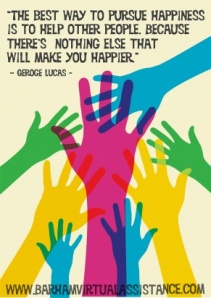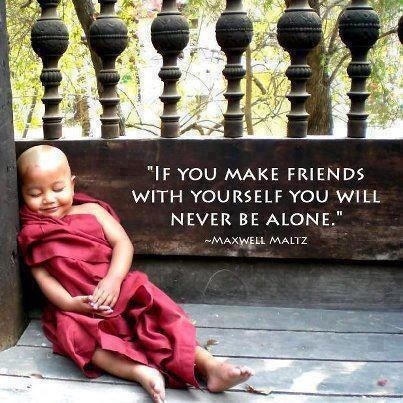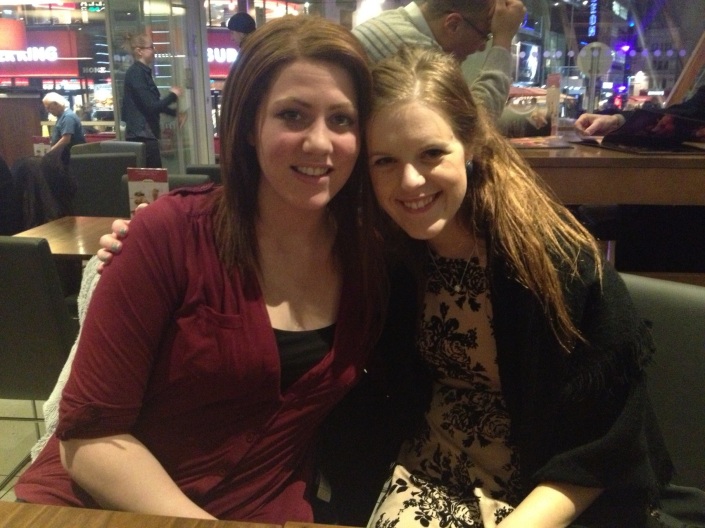London
Let`s change the world: Background
Let`s change the world: Background
in Norway we are on 2 place when it comes to overall happiness. So why don`t we do more for others?
When you think about the world today, its easy to get overwhelmed. We see news every day, where the current themes are war, unemployment, hunger, extreme weather and people dying of different diseases. I am lucky, and live in one of the wealthiest countries on earth, just because we were lucky and had a lot of oil that we could sell to the rest of the world. We have also saved a lot of the money, so that it grows fat and can protect us in the future. We have it all. I remember a friend in United Kingdom (a wonderful man who doesn`t realize it himself) shaking his head because we actually GET paid for studying, and we can study for 8 years without having a severe effect on our economics. He worked from

early morning to late in the evening, and he was lucky, because it is so hard to actually find a job in London. Here this would lead to outrage and news in the papers (in the local news, it was actually top news that one doctor had worked for several years without a proper summer holiday). We are also a country that contributes a lot to the welfare of other countries and we often give of our own money when it comes to a good cause, but more than that, we don`t do. Of course its easy to feel a bit miserable and overwhelmed when you live in luxury while you know that so many people don`t. When we throw away food, because it is a bit too old, while somebody could kill another man for just one bite, our view on ourselves as good human beings, falter. Therefore, we have to construe a reason for not doing more, and here, I think, is where our brains help us.
Heard of cognitive dissonance before? If not, please read this before continuing:Cognitive Dissonance & Self-Justification (htycm.wordpress.com).The basics are: If we do something that don`t fit our view of ourselves, we find an explanation for not doing the “good” thing. For example, if we know smoking is bad for us, but still not quit, it must be because “we know a lot of people who haven`t died from smoking”. That is one of the reasons they include a phone number on cigarettes, so people feel they actually can DO something with the problem, since research show, that when we have the chance to do good, we often do so. Especially if we see others “do the right thing”. Maybe that`s why exercising together with friends, or quitting smoking together with your partner, might be extra motivating. We are often more concerned by what others think about our will to commit, then we are if we break our own mental “standards”.
So, what is the reason that I write about this at all? If we so easily give up, why bother at all? That might be a conclusion, an actually an example of cognitive dissonance. Because something seem too hard, doesn’t mean it’s impossible to change it. We see the effect of one person gathering people who care all the time (but maybe don`t hear to much of it in the news) and if more people started to actually believe in themselves and at least try to do something, I don’t think this necessarily would take a lot of time. Think about how popular earth hour has become. For 1-2 hours the whole world turn of their light, and this small and easy effort done by everyone, helps the environment so much. What if all persons were supposed to at least ONE time during the year, not take the car for work, but a bus/cycle or walk instead, would not everyone want to give? In the oil crisis in -73 people started to talk together so that they had to share cars, thereby decreasing traffic, and even getting more social as an extra bonus (main complaint from a lot of patients I see: They feel lonely and unconnected to th e world). A lot of people know how influenced our climate gets by pollution, but since we do nothing to change it ourselves, cognitive dissonance sets in (our contribution is just a drop in the sea, anyway). But all these small drops can have an enormous effect! A lot of hotels these days, have some kind of information about saving energy and water; by installing environmental friendly equipment for the shower or putting up a request for guest to use their towel twice, to save water.
e world). A lot of people know how influenced our climate gets by pollution, but since we do nothing to change it ourselves, cognitive dissonance sets in (our contribution is just a drop in the sea, anyway). But all these small drops can have an enormous effect! A lot of hotels these days, have some kind of information about saving energy and water; by installing environmental friendly equipment for the shower or putting up a request for guest to use their towel twice, to save water.
C. P. Pierce says it like this:
 Smaller transactions have the same effect. Over this past holiday season, a management group in Rhode Island gave its employees money on the express condition that the employees then give it away to someone else in need. The company then asked their employees to share the stories of their charity at a company meeting. Thus does the act of giving away money form a kind of oral history, from giver to recipient and then to the people to whom the story is told. There is a spark of the collective consciousness in that, which hearten not only those people involved in the transaction but those who hear the story and pass it along. There is something like art there.When giving away your money, it helps to think of it as more than bits of paper and scraps of metal. That’s not a $20 bill you’re slipping into the envelope there. It’s a bagful of flour. It’s soup or a blanket or a bottle of medicine. That handful of quarters is a handful of rice. You can even make this art out of raw self-interest. Giving away money can be the most selfish thing you do. With a father and four of his siblings dead from the same disease, I can look at the check I send to the Alzheimer’s Association and see something that is every bit as therapeutic as any new therapy that money may help create. I see new drug trials, and respite care, and a light against enveloping darkness.There is nothing more visceral than cynicism, nothing more brutish than greed. These are reflexes, common and unremarkable, of the undeveloped spirit. But charity in its finest sense is always an act of the creative imagination.So who knows, maybe we will save the world after all.
Smaller transactions have the same effect. Over this past holiday season, a management group in Rhode Island gave its employees money on the express condition that the employees then give it away to someone else in need. The company then asked their employees to share the stories of their charity at a company meeting. Thus does the act of giving away money form a kind of oral history, from giver to recipient and then to the people to whom the story is told. There is a spark of the collective consciousness in that, which hearten not only those people involved in the transaction but those who hear the story and pass it along. There is something like art there.When giving away your money, it helps to think of it as more than bits of paper and scraps of metal. That’s not a $20 bill you’re slipping into the envelope there. It’s a bagful of flour. It’s soup or a blanket or a bottle of medicine. That handful of quarters is a handful of rice. You can even make this art out of raw self-interest. Giving away money can be the most selfish thing you do. With a father and four of his siblings dead from the same disease, I can look at the check I send to the Alzheimer’s Association and see something that is every bit as therapeutic as any new therapy that money may help create. I see new drug trials, and respite care, and a light against enveloping darkness.There is nothing more visceral than cynicism, nothing more brutish than greed. These are reflexes, common and unremarkable, of the undeveloped spirit. But charity in its finest sense is always an act of the creative imagination.So who knows, maybe we will save the world after all.- Cognitive Dissonance & Self-Justification (htycm.wordpress.com)
- How to Ensure You Benefit From Your Failures (alleywatch.com)
- Dealing With Cognitive Dissonance, Yet Again (thespectacledbean.com)
Dealing With Cognitive Dissonance, Yet Again (thespectacledbean.com)
- Cognitive Dissonance (arrasdariuskhaledi.wordpress.com)
Cognitive Dissonance & Self-Justification (htycm.wordpress.com)
- Cognitive Dissonance (arrasdariuskhaledi.wordpress.com)
The lies we tell ourselves (fatcatistification.wordpress.com)
- Cognitive Dissonance (arrasdariuskhaledi.wordpress.com)
Cognitive Dissonance & Self-Justification (htycm.wordpress.com)
- Cognitive Dissonance (arrasdariuskhaledi.wordpress.com)
Related articles
- Let us change the world (forfreepsychology.wordpress.com)
The sound of London and Me
Thee train is pulling me further and further away from all the Britishness I learned to love on the Asia-trip. I`ve just waved goodbye to Hannah, Gemma and my fantastic friend Matt.
The funny thing was that it didn’t feel like it was 5 months since we saw each other, it was like coming home; Strange considering it was my first time in London.

Gemma just had her exam, and was a bit tired, but it was hard to notice, since nothing in the world can stop her from being just marvelous. She’s one of a kind, and it was lovely seeing her. Hannah was also full of life, that she spread all around her with vigor. We talked about all we could on the hours we had, and I couldn’t feel better.
One day later, and I`m sitting on the train to Gatwick, listening to stars by Nelly furtado, which makes me calm and happy. It’s so beautiful outside; The skyline colored pink, the grass blessed with thousands small snow crystals. I’ve had my tea, warming me to the core with blissful contentment. I feel completely free and ready for whatever my destiny will bring.
Even if I didn’t get much sleep last night either, it seems like my body has adjusted to it, so that I don’t feel the tiredness. Everything was completely worth it. Life should be like this, doing what you feel without regretting anything. Seeing Gemma and Hannah was fantastic, like I hoped for.
We ate in Chinatown and then went for the most amazing unhealthy sin: Ice cream at haegens. I’ve also had a good day before that, even if my luck for practical coincidences has left me for the time (which is completely okay, since maybe my loveometer is finally ready to warm up again, after being far to occupied with staying under freezing-point at any time)
Some days later, I’m sitting in a hotel in the capital city of Norway, in a different mood. I’m waiting for a friend I will hang out without this evening, and I`m a bit restless. I’ve overslept today, since I hadn`t turned on the sound on my iPhone, so suddenly the clock was 10.00 in the morning, and I came late for the course I’m attending. Honestly, wasn’t one of my top days, since I was ‘being a therapist’ in front of the group we were divided into, and frankly became too friendly with some of my nerves. I was unfocused and almost asked questions at random.
It’s not good when you want something so much, that you lose it exactly because of it; A never-ending theme it seems. Even worse, by one more crazy coincidence, I ended up in a group where my earlier therapist was. I so look up to her, and maybe wanted to show her that I developed since I went to her, but I don’t think I managed to do anything else than make myself miserable. It was so strange to see her again, in that setting. She knew I would be there, but I hadn’t checked the attending list before, so I was one big knot of confusion and surprise when I saw her.
We got the chance to talk a little, and I said where I work, and that I’m doing good. She said: I always knew you would make it, and that was so lovely to hear. A therapist means so much to the people who come to them, and being with her gave me such respect to what a person can accomplish in somebody’s else’s life, that I always wanted to give others the same, and I wanted her to see that I’ve learned that from her, exactly HOW much she meant, but just couldn’t.
I guess we all have experiences like that, and it’s not the end of the world, but I’m still thinking about it and must probably mull it over for a while.
Some days later, and I’m not thinking too much about it. The rest of my time in Oslo was brilliant, I met old friends and also said hello to new ones. Should actually been in Førde by know, but the plane is two hours late, so there won’t be many pieces of the day left when I return. Tomorrow it’s back to work, and that will be okay. Always a little anticipation before I check who I will talk with that day. I hope that they managed fine the week I was away, and that there hasn`t been a crisis for any of them.
Hope my readers had a good weekend ?
href=”https://mirrorgirlblog.files.wordpress.com/2013/01/20130120-152136.jpg”>


You must be logged in to post a comment.